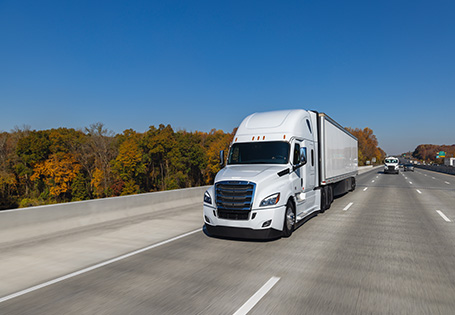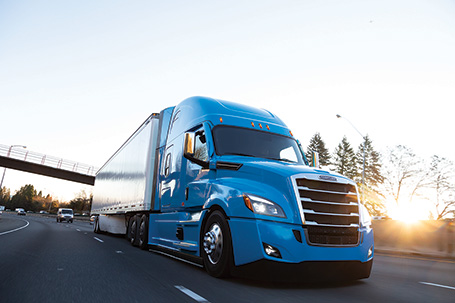Should You Be an Independent Owner-Operator or Leased to a Carrier?
Published on
22 August 2017
Your Center for 37663
Searching for centers...
No centers found in this area. Please try a different location.

22 August 2017
When starting out as an owner-operator, you’re are faced with a lot of decisions. One of the most important decisions is whether or not you should incorporate, or whether you should operate under your own authority or hire on with a carrier.
Talking with a trucking tax adviser/accountant can help you make the right decisions that will best help you get started on the road to success, such as deciding how to structure your business and explaining the tax benefits of incorporating.
Here are some additional ideas to consider.
Some owner-operators choose to operate under their own authority. Generally, these individuals have most of the following traits:
Good at communicating, problem solving and interacting with people — you’ll need positive references to get started
Have adequate cash flow with six months operating expenses set aside (enough money to keep you rolling until you get paid for the loads you hauled)
Able to find loads on their own
Have enough cash flow to purchase your own license plates and pay your own cargo insurance (anywhere from $4,000 to $6,000 per year), taxes, truck and personal insurance, etc.
Able to manage paperwork and file their own fuel taxes and permits and know and understand how to be in compliance with Federal Motor Carrier Safety Regulations
Self-motivated and successful at collecting money that is owed to them
Some owner-operators prefer to contact with a carrier for the benefits the carriers can provide them. Here are some considerations to think about:
Regular pay periods (usually weekly settlement checks)
Carrier provides the loads you haul
Many carriers offer health insurance
Carrier files your fuel taxes, cargo insurance, toll tickets and a portion of your various licenses and permits
Pass company driver requirements
At least one year of driving experience (some require one to two years over-the-road experience in the last three-to-five years)
Meet all DOT (Department of Transportation) requirements, including passing the physical and alcohol screen
No DUI (driving under the influence) convictions in the last three-to-five years, no more than two moving violations in the past three years
No felony convictions or probation
No major preventable accidents in last two-to-three years
Possess a CDL
Some have minimum age requirements
Good references
Truck title (original or notarized certified copy is accepted)
Form #2290 showing proof of payment of Federal Highway Use Tax for current year
Certified unladen weigh ticket
Insurance certificates for Bobtail and Physical Damage Insurance (if not purchasing insurance through the carrier)
Social security or federal tax ID number
Some require recent model equipment with specific axle, wheelbase and height requirements, while other request that your tractor comply with their company colors (can require money set-aside for paint job on your existing truck if needed to hire-on)
Must pass visual inspection
Some require satellite communications (often offer a rental package for a monthly fee)
Is this company financially strong with a good reputation and stable customer base?
Can they provide year-round miles? Talk with owner-operators who currently work for this carrier and get the inside scoop on how they operate.
How much and how do they pay, by the mile or by the load? Is what they pay going to be enough to cover your household expenses and business expenses? Do they pay a signing bonus and if so, does it require you to sign a longer contract than normal?
Do they offer group health and life insurance?
Are they easy to work with, and do they treat their drivers with respect? You can get a sense for this right down to the people who answer the phones. If it’s unpleasant just trying to get a job there, it could be a sign of things to come.
Make sure you are a good fit and that this carrier handles the types of loads you want to haul.
Does this carrier pay dead-head miles?
Read the fine print and have a professional (such as your lawyer or accountant) read the signing contract.
Make sure charge-backs, or “fines,” are clearly outlined and that you understand them.
Understand what will be deducted from your settlement checks and for which expenses you or your carrier are responsible.
Make sure you understand any bonuses the carrier offers. Are they so hard to attain that you will never benefit from them?
Check into their seniority practices when assigning loads. Are there enough loads that their drivers with seniority and their new-hires can both make a living?
Does this company require you to pay money up front (up to $2,000) toward an escrow account (in case you incur damages or unpaid expenses)? If so, make sure it is clearly defined and that you know how soon this money is reimbursed, should you leave the company.
Ask one (or more) of their drivers if they are getting as many miles as they want; if the carrier pays on time.
Our trusted team of truck advisors are here to help you reach your goals by providing exceptional used truck solutions with unwavering support. That means knowledge of your truck as well as business tips, financing and more.







